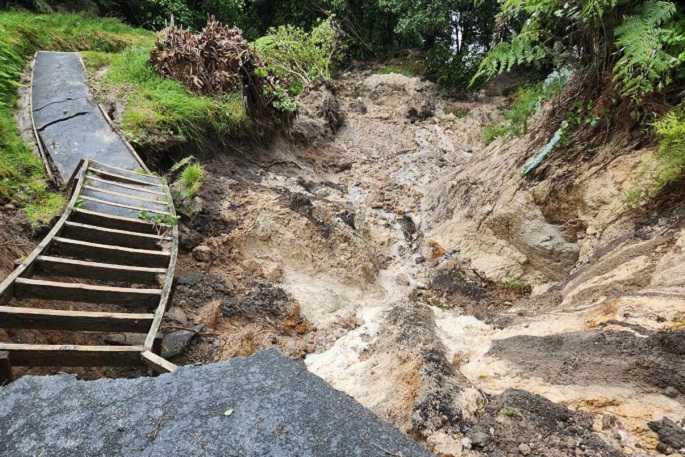People are being urged to check tracks, huts and campsites are open before attempting to visit conservation land in the wake of Cyclone Gabrielle.
The cyclone has left a path of devastation across the North Island, significantly impacting thousands of people. The Department of Conservation is focused on supporting people and communities through the emergency response at this difficult time.
'This is an unprecedented event,” says DOC's Deputy Director-General Organisation Support Mike Tully. There is a National State of Emergency and DOC is part of an all-of-government response.
'DOC's priority at this point is the safety of the public, staff, contractors and volunteers.”
There is extensive public conservation land across the North Island which has been affected. DOC facilities in Northland, Auckland, Waikato, Coromandel, Bay of Plenty, Tairawhiti, and Hawke's Bay have been closed to the public for the past week.
'It will take time for DOC to make sure that conservation areas are safe.
'We're urging the public to please bear with us while we wait for the waters to recede and begin the clean-up. We need to understand the scale of the damage to tracks, huts, campsites and other DOC facilities and make decisions on repairs.
'This is a huge job for DOC. Some sites will need initial checks, formal assessments and then full engineering inspections.”
DOC facilities in the affected areas will stay closed until it's been determined they are safe.
As sites are inspected, we will open up public conservation areas, with some expected to open on Monday. We urge people to check our website for details on individual facilities before they venture out, as this will be updated daily.
'Decisions on reopening facilities will be made once DOC staff can access these areas safely. We will be prioritising the most accessible and high-use sites first.”
Mike Tully says already we have heard that quick fixes are unlikely in some places. DOC's response must consider the likelihood of ongoing climate change impacts as weather events become more extreme and frequent.
Across the North Island and the top of the South Island people should use extreme caution outdoors and be prepared to turn back, says Mike Tully.
'Backcountry tracks and huts are yet to be fully assessed; all should be treated with extreme caution until assessments can be completed. We recommend you do not enter these areas as the risk levels are unknown. Any use is at your own risk.
'Please do not use areas that have not been checked and declared safe. Report any damage you encounter to the local DOC office.”
Check the DOC website for latest alerts and closures, as this will be updated daily.



0 comments
Leave a Comment
You must be logged in to make a comment.